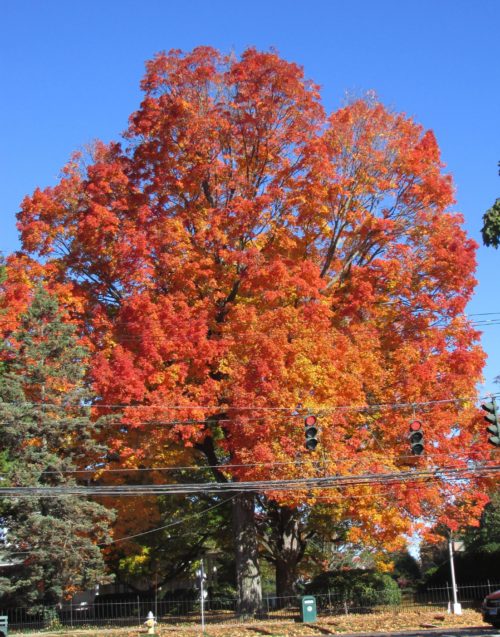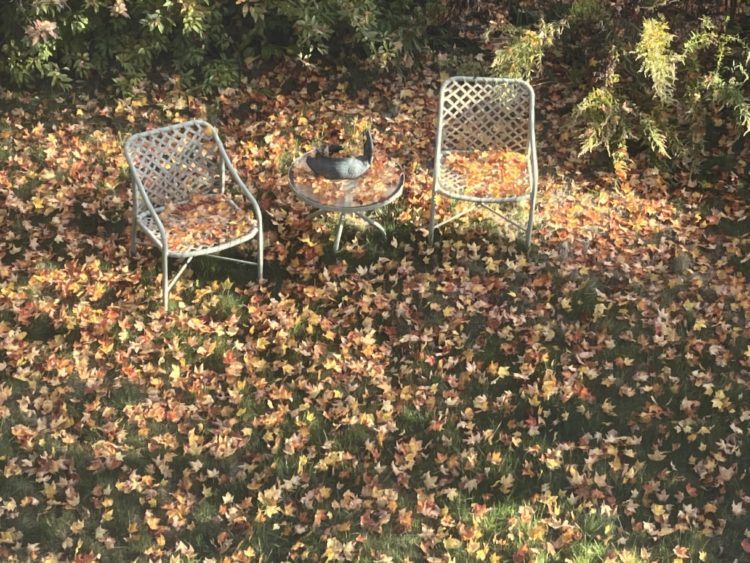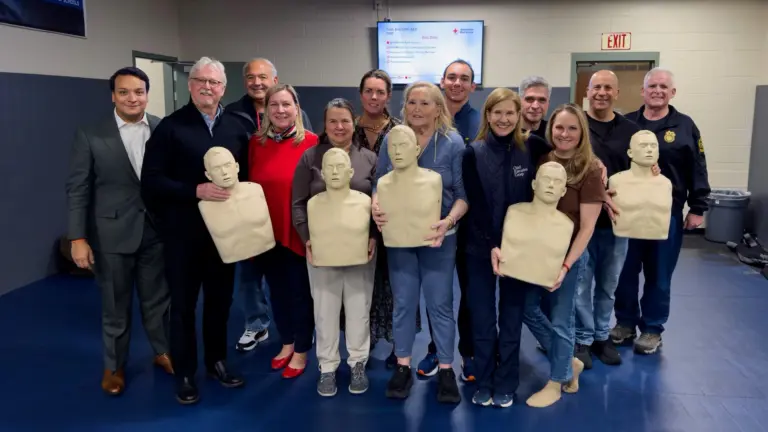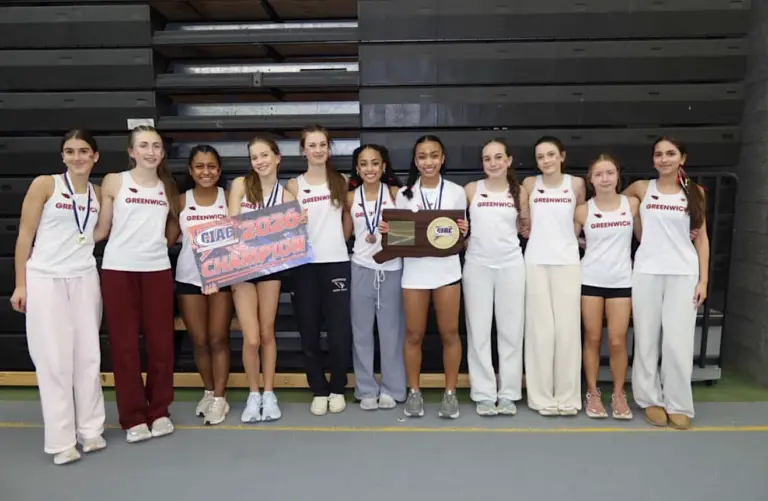By Anne W. Semmes

The peak leaf peeping season is past, but it has given this reporter an inordinate amount of pleasure seeing the brilliantly colored leaves gracing our trees. And when they were falling that haunting “Autumn Leaves” song with its lyrics sung so well by Frank Sinatra came to mind: “The falling leaves/Drift by my window/The autumn leaves of red and gold…”
It is written that “that autumnal leaf drop from our trees is a form of self-protection. Dropping them gives the plant a fresh start in the spring, and the nutrients from the decaying leaves are recycled to help grow the next leafy generation.”
But now I see those fallen leaves being piled aside our residential roadways, raked away from our lawns to be picked up beginning next Monday by the Town’s Department of Public Works (DPW) from properties a half-acre or less. Those leaves are destined for a composting site called Snow’s Farm near Easton says Patrick Collins who serves as the DPW’s Environmental Organizations Manager of the Holly Hill Transfer Station. Surely, far from the trees that produced them. Leaves that could be benefiting those property owners’ trees and lawns.
For the last seven years Aleksandra Moch of our Town’s Conservation Commission has been trying to wake up Greenwich residents, even those in tree-rich backcountry to her Commission’s initiative, “Leaves: Nature’s Treasures,” to “encourage property owners to recycle leaves.” Her brochure reads “Leaves and grass clippings can be shredded into the lawn when mowing. This process is also known as ‘cycling’ or simply recycling them back into the soil. This free organic matter provides an excellent source of nutrients for the lawn, enhances the soil structure, and saves time and money.”
So, Moch reports she has seen property owners “mulching, mowing the leaves into the lawn instead of blowing them and putting them on the street.” But she adds, “There’s so many of them who actually prefer them to be picked up.”
She has the state of Connecticut’s support having ruled that it’s against the law “to burn leaves or dispose leaves as a garbage.” Yes, those picked up leaves are going to the composting site, but if property owners recycle their leaves, wouldn’t we be saving money, with no leaf pickup and no need to “haul them to the composting site?”
Yes, those in denser neighborhoods may lack the space to store their leaves, while those with larger acreage may be composting their leaves on their site or “probably just blowing the leaves to the woods, or the landscaping contractors are taking them to a composting site.”
But Moch argues: “From the environmental perspective, this is all wrong because whenever we’re taking something from our landscape, we’re supposed to be putting it back because it grows from our soil to be nutrients. And now is the time to return the nutrients back to the soil. And this is the natural process, which was designed by Mother Nature, who is always the most perfect designer. And we’re supposed to be mimicking it, but instead of doing it, we’re just giving those leaves away.”
Plus, says Moch, those leaves being piled along roadways [for a final pickup mid-December] block traffic and “they’re creating slippery conditions.” And in Riverside she points out a narrow road leading to Eastern Middle School with curbs on both sides has leaf piles on both sides and becomes a one-way street. “And in the morning when parents are driving their children to school, it’s very dangerous. And there’s no place for bicycles for those who are biking to school.”
Also, Moch adds, “These beautiful leaves that are so good for our soil and our garden, we put them out on the street – they’re soaking up all of those oils and gas leaking from the cars and basically just become polluted. So, the good stuff becomes not so good.”
Moch was encouraged when her Commission received a $20,000 grant a few years ago from the Connecticut Department of Environmental Protection that partly went to obtaining over a hundred composters for property owners. So, “When someone contacted us that they would like to have a free composter, we would go to their property and set up the composter at the best location. We would put the leaves into the composter or shred the leaves, which will create the base. And when we left the property, the composter was easy to not only set up, but also ready to be used.” But, looking back at that effort, she says, “The results were not as great as we expected.”
“We taught people how to mulch small leaves into the ground or into their lawn,” she continues. “It’s very easy. Even if you don’t have a mulching mower, you can do it with a regular mower. You just have to take two or three trips sometimes over the leaves. And then if you would like to have a mulching mower, you can just simply buy a new blade and that turns your regular mower into a mulching mower blower.
“And this not only saves you time because you don’t have to blow those leaves, but you also don’t have to generate the noise all your neighbors hate. You can basically incorporate all the leaves into your lawn, and your soil will benefit from it because you’re putting back the nutrients into the soil, you’re feeding the microbial community, and improving the soil structure. There are so many benefits.”




